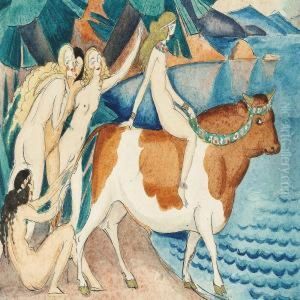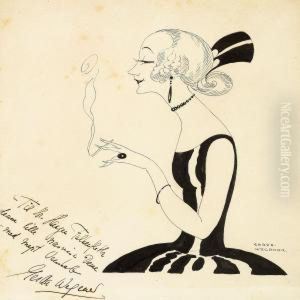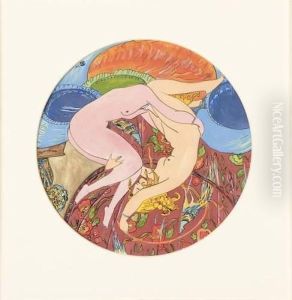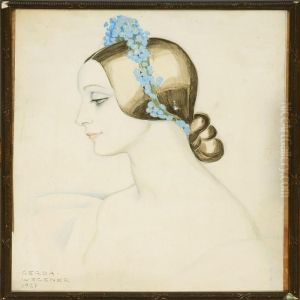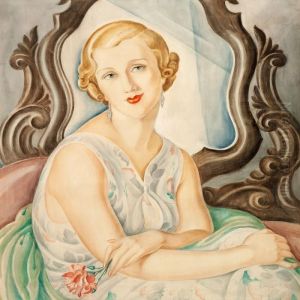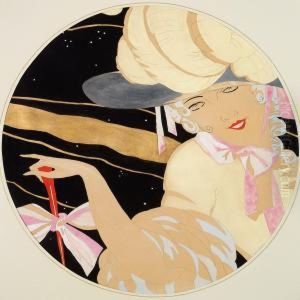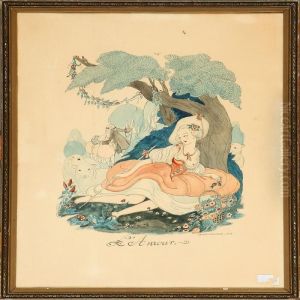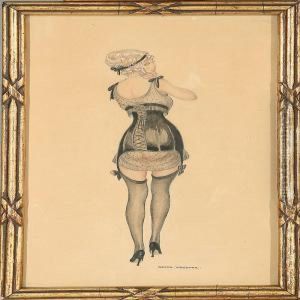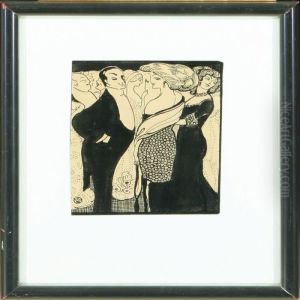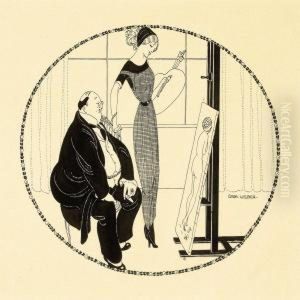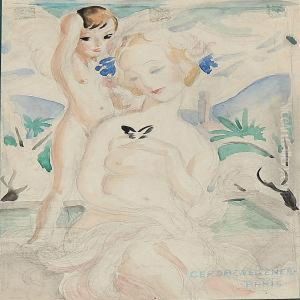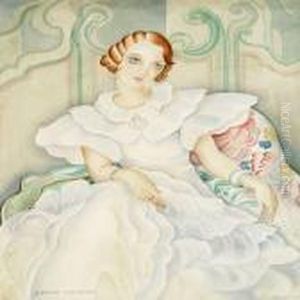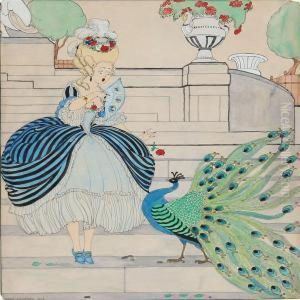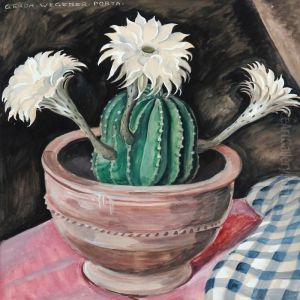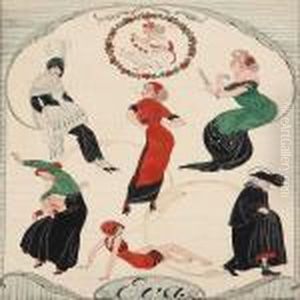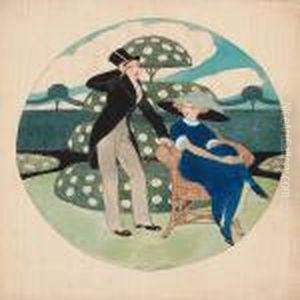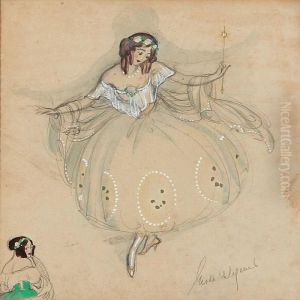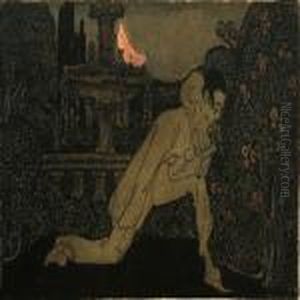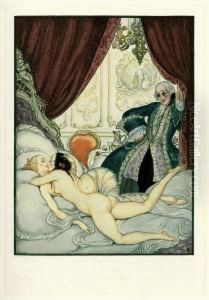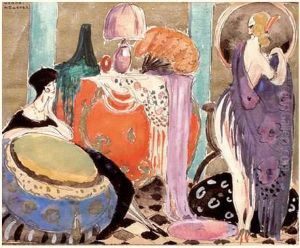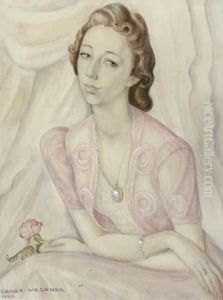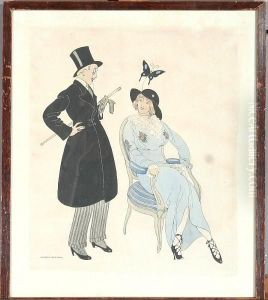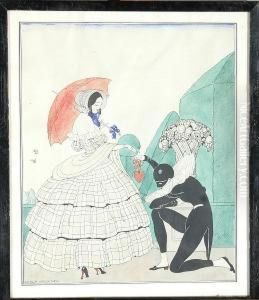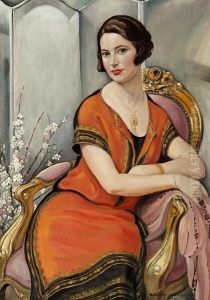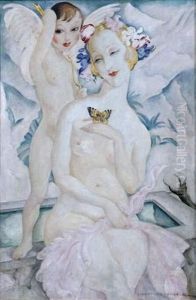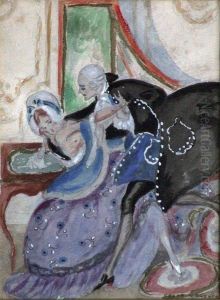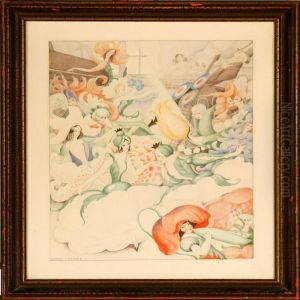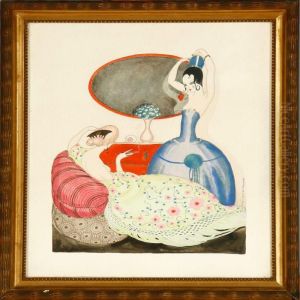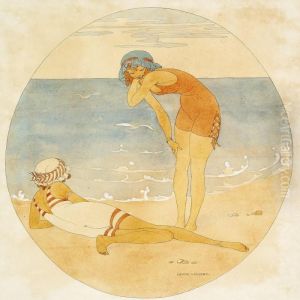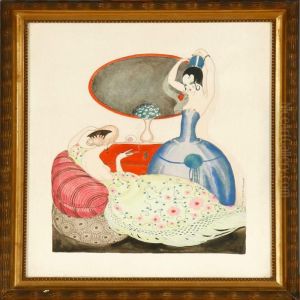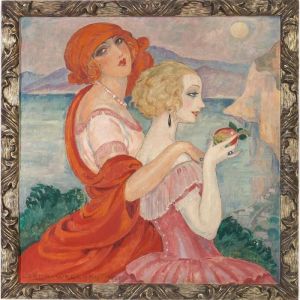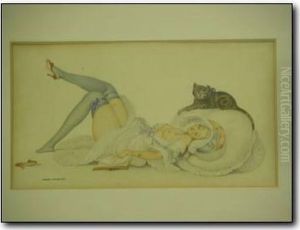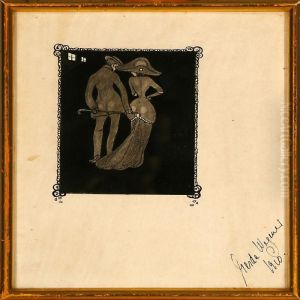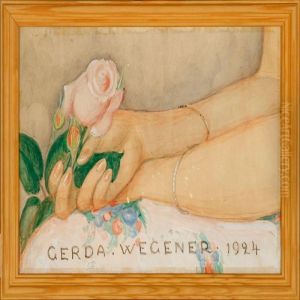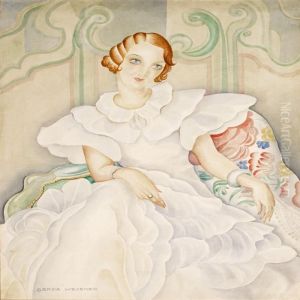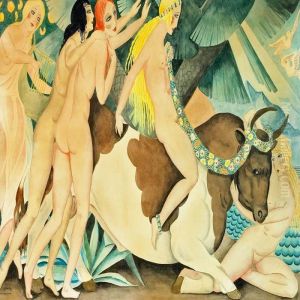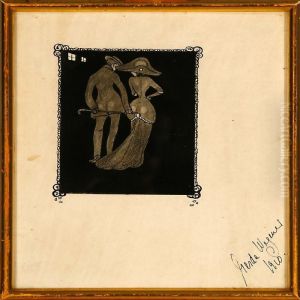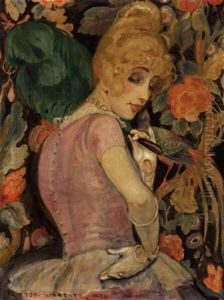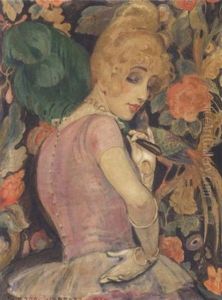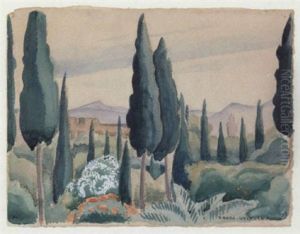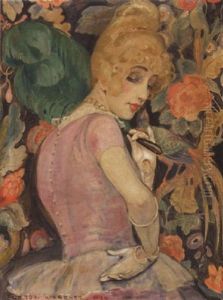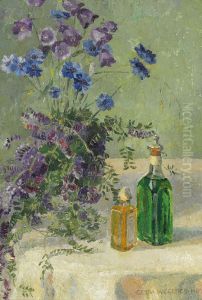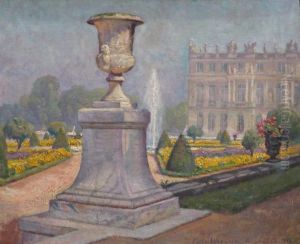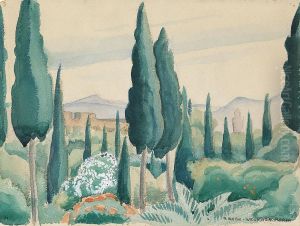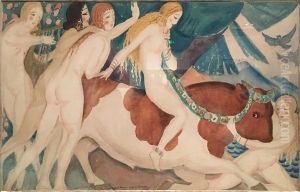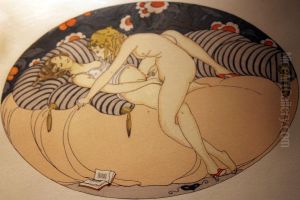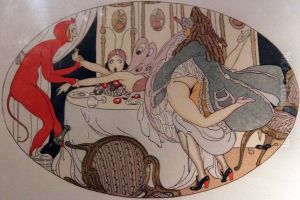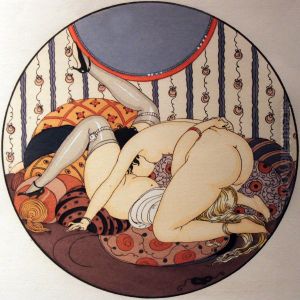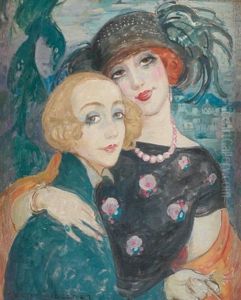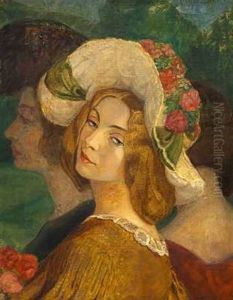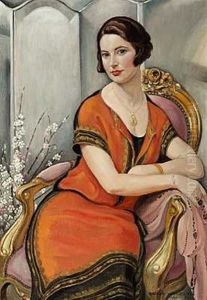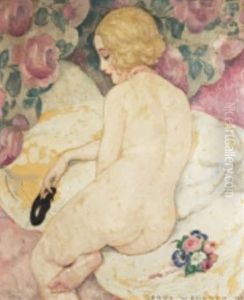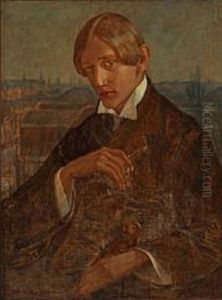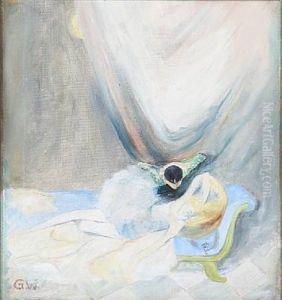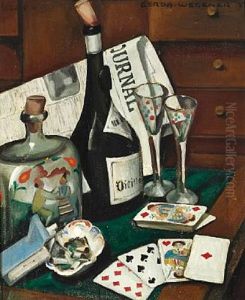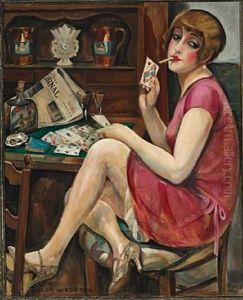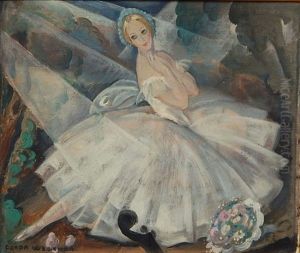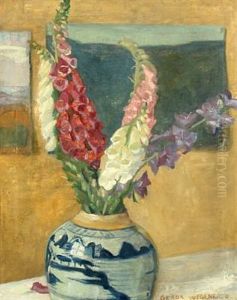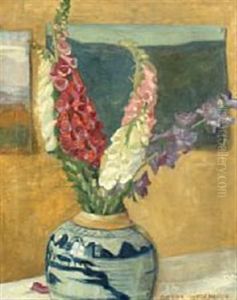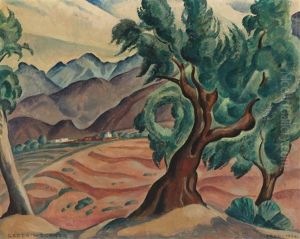Gerda Wegener Paintings
Gerda Wegener was a Danish illustrator and painter, known for her Art Nouveau and later Art Deco works. Born on March 15, 1886, in Hammelev, Denmark, Wegener attended the Royal Danish Academy of Fine Arts in Copenhagen, where she developed her artistic skills and met her future husband, fellow artist Einar Wegener, who would later become Lili Elbe, one of the first identifiable recipients of sex reassignment surgery.
Gerda's art often explored themes of femininity and eroticism, with a particular focus on the depiction of fashionable women. Her style evolved throughout her career, but she remained dedicated to portraying the female form with elegance and sophistication. Gerda's marriage to Einar was a significant aspect of her life and work; Einar frequently modeled for her, dressed in women's clothing. These depictions played a role in Einar's journey of self-discovery as a transgender woman, and Gerda supported Lili Elbe throughout her transition.
The couple moved to Paris in 1912, a city known for its bohemian lifestyle and greater acceptance of unconventional lifestyles. Paris allowed Gerda to explore her artistic interests further and gain recognition for her work. Her illustrations appeared in fashion magazines, and she held several successful exhibitions. The artistic community in Paris was more open to the fluidity of gender identity, which was reflected in the freedom of expression visible in Gerda's artwork.
Despite the liberal environment, Lili's transition was not without challenges. The couple's marriage was annulled in 1930, after which Lili underwent multiple surgeries. Unfortunately, Lili passed away in 1931 due to complications from the procedures. Gerda's life took a turn after Lili's death; she struggled with her career and eventually remarried.
Gerda Wegener's work was somewhat forgotten until the late 20th century, when there was a renewed interest in her life and art, partly due to the increasing visibility of LGBTQ+ issues. Today, she is celebrated not only for her contributions to art but also for her role in LGBTQ+ history. Gerda Wegener died on July 28, 1940, in Frederiksberg, Denmark. Her legacy lives on through her vibrant and often provocative artwork, which continues to captivate audiences and contribute to discussions about gender and identity.
